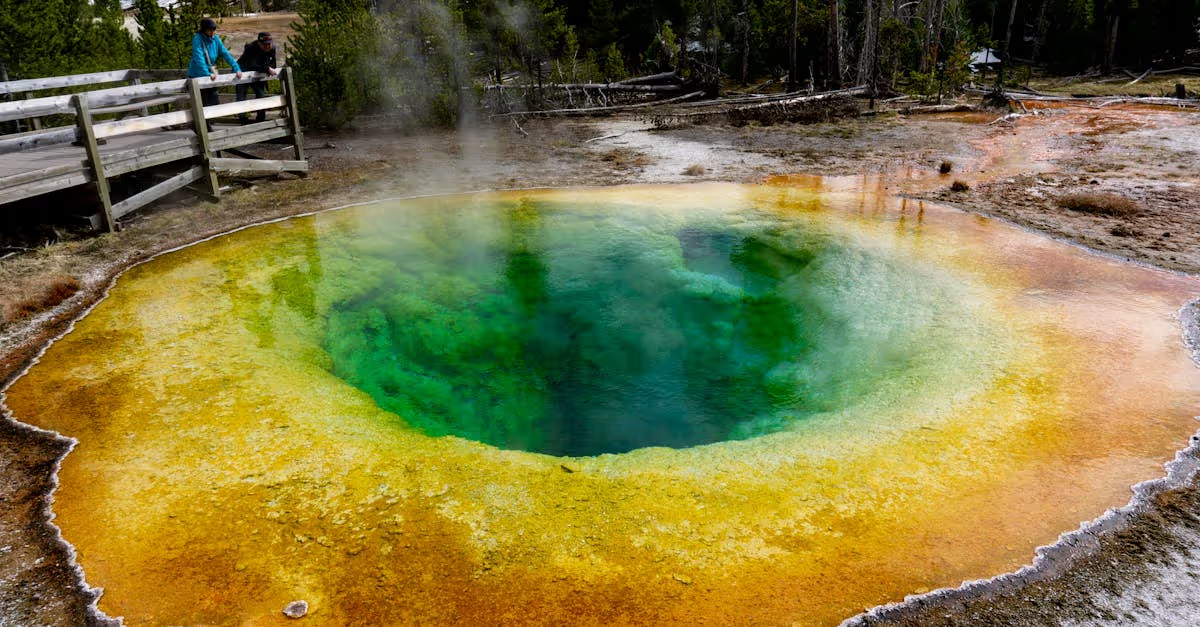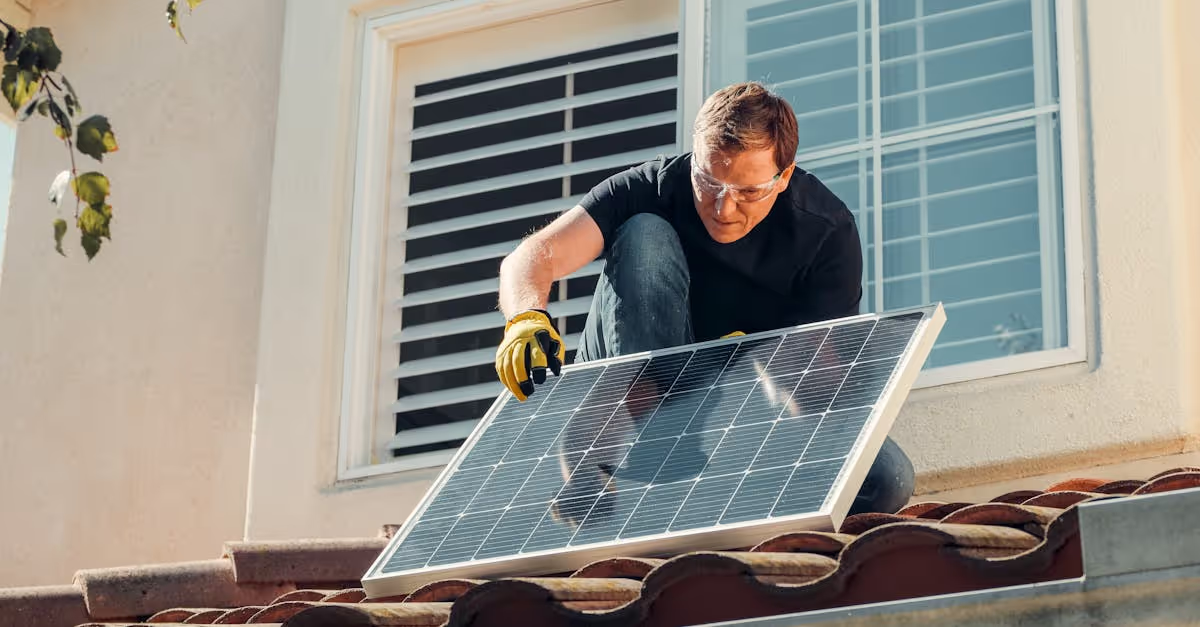Key Takeaways
- Energy Efficiency: Heat pumps can be up to 75% more energy-efficient than traditional gas heaters, while geothermal systems reduce heating costs by up to 70%, leading to significant savings on energy bills.
- Sustainability: Both heat pumps and geothermal systems utilize renewable energy sources, minimizing carbon emissions and contributing to a lower environmental impact.
- Cost Considerations: Heat pumps generally have lower installation costs and operating expenses, making them ideal for short-term savings, whereas geothermal systems, though higher in initial investment, offer superior long-term savings.
- Performance in Various Climates: Heat pumps are effective in mild climates but may struggle in colder regions, while geothermal systems deliver consistent heating regardless of external weather conditions.
- Maintenance Needs: Geothermal systems require less frequent maintenance compared to traditional heaters, allowing pool owners to enjoy their swimming experience with minimal disruptions.
- Informed Decision-Making: When choosing a heating system, consider personal circumstances, costs, and environmental impact to find the best solution for your pool heating needs.
As pool owners, we all want to enjoy a comfortable swim, but heating our pools can be a costly endeavor. Did you know that traditional gas heaters can increase energy bills by up to 100% during peak usage? Thankfully, alternative heating options like heat pumps and geothermal systems are changing the game. These innovative solutions not only provide efficient heating but also help reduce our carbon footprint.
Heat pumps can be up to 75% more energy-efficient than gas heaters, while geothermal systems tap into the Earth's natural warmth for sustainable heating. By exploring these alternatives, we can keep our pools warm without breaking the bank or harming the environment. Let's dive into the world of alternative pool heating options and discover how they can transform our swimming experience.
Overview of Alternative Heating Options for Pools
We explore several alternative heating options for pools that offer energy efficiency and environmental benefits. These systems, notably heat pumps and geothermal systems, provide reliable choices for pool owners aiming to maintain comfortable water temperatures without breaking the bank.
Heat Pumps
Heat pumps transfer heat from the air to warm the pool water. They're versatile and can function effectively even in cooler temperatures. Heat pumps achieve energy efficiency, operating at a ratio of 1:4. For every unit of electricity used, they can generate approximately four units of heat. This efficiency translates to reduced energy bills compared to traditional gas heaters, making them a popular choice.
Geothermal Systems
Geothermal systems tap into the Earth's consistent temperatures to heat pools. By circulating water through underground pipes where the temperature remains stable year-round, these systems can provide substantial energy savings. Geothermal heating is not only efficient but also sustainable. Reports indicate that geothermal systems can reduce heating costs by up to 70% compared to gas heaters.
Comparing Options
| Heating Option | Efficiency Rate | Cost Savings | Environmental Impact |
|---|---|---|---|
| Heat Pumps | Up to 75% more efficient | Moderate savings | Lower emissions |
| Geothermal Systems | Up to 70% cost reduction | High savings | Minimal emissions |
We recommend evaluating both types before deciding. Each system has its strengths. If initial costs concern us, consider electric heat pumps. For long-term savings and less environmental impact, geothermal systems present a compelling case.
Factors to Consider
We encourage looking at specific factors before purchasing. Consider the following:
- Climate: Heat pumps work well in mild climates but can struggle in colder regions. Geothermal systems, however, perform consistently.
- Installation Costs: Heat pumps usually involve lower upfront costs, while geothermal systems might require more investment upfront.
- Long-Term Savings: Over time, geothermal systems offer better ROI through significant energy savings.
Ultimately, choices depend on personal circumstances and preferences. We're all part of this journey toward finding the best heating solution for our pools. Let's engage in discussions and share findings on what works best in our local communities.
By weighing these factors, we can make informed decisions and enjoy warm pools without the stress of high energy bills or negative environmental consequences. It's a win-win for us and our world.
Heat Pumps for Pool Heating
Heat pumps serve as an efficient and eco-friendly alternative for heating pools. They capture environmental heat, transferring it to the water, and offer pool owners a cost-effective solution.
How Heat Pumps Work
Heat pump pool heaters capture heat from the air using an evaporator coil. This process begins with the coil absorbing ambient heat. Next, a compressor intensifies this heat. Finally, the intensified heat travels through a heat exchanger, warming the pool water. This technology operates effectively across different temperature ranges, demonstrating its versatility.
Advantages of Using Heat Pumps
- Energy Efficiency
Heat pumps maximize energy use by extracting heat from the environment instead of generating it. They operate at a ratio of 1:4, meaning for every unit of electricity consumed, they produce four units of heat. This efficiency can lead to significantly lower energy bills.
- Cost Savings
Switching to heat pumps significantly reduces operating costs compared to traditional gas heaters. Users can expect annual savings of up to 75%. They rely on the heat around us, leading to less reliance on expensive energy sources.
- Environmental Benefits
Heat pump systems contribute to lower carbon footprints by using renewable energy. Opting for these systems supports sustainable practices without sacrificing comfort.
When we consider pool heating options, finding a solution that combines efficiency and savings is vital. Heat pumps meet these needs, making them a compelling choice for pool owners looking to reduce expenses and environmental impact.
Geothermal Pool Heating Systems
Geothermal pool heating systems provide an efficient and environmentally-friendly method to maintain warm water for swimming. These systems capitalize on the Earth’s consistent underground temperature, making them reliable year-round.
Understanding Geothermal Energy
Geothermal energy harnesses the natural heat from the Earth. Pipes buried underground circulate water, absorbing warmth from the surrounding soil. This heat then transfers to the pool water, ensuring a stable temperature throughout the swimming season. Imagine the Earth acting like a giant battery that recharges itself, providing us with a sustainable energy source.
Benefits of Geothermal Heating
Geothermal heating systems offer several advantages that appeal to pool owners.
- Significant Energy Savings: These systems can cut heating costs by up to 70%. That means more money for pizza parties after pool days!
- Low Maintenance: Unlike traditional heating systems, geothermal systems require less frequent maintenance. Fewer trips to the repair shop equal more time splashing in the pool.
- Eco-Friendly Choice: Geothermal systems use the Earth's renewable heat, minimizing carbon emissions. It's like having a cool friend who shares their snacks instead of eating them all!
- Stable Performance: Geothermal systems function well in both hot and cold climates, providing consistent heating. We can swim comfortably regardless of the weather—no more icy dives!
These benefits make geothermal heating an essential consideration for any pool owner looking to balance comfort and cost while being kind to the planet.
Comparing Alternative Heating Options
We explore the cost efficiency and environmental impact of heat pumps and geothermal systems, providing pool owners with essential insights.
Cost Efficiency
Heat pumps excel in cost efficiency. They provide up to six dollars' worth of heating for every dollar spent on electricity. In contrast, traditional gas heaters can average around $6,000 annually for maintaining pool warmth, while heat pumps average only $1,300. This considerable difference in cost makes heat pumps an attractive choice for pool owners. Geothermal systems also shine in this area, offering energy savings of up to 70%. When evaluating heating options, we should consider the long-term savings alongside the initial installation investment.
Environmental Impact
Heat pumps and geothermal systems offer significant environmental benefits. Heat pumps minimize carbon emissions by using renewable energy sources, contributing to a cleaner environment. Geothermal systems harness the Earth's natural warmth, producing even fewer emissions. This efficient performance helps reduce each pool owner's carbon footprint. As we choose heating solutions, it's essential to consider solar options or energy-efficient systems. What impact do we want our choices to have on the planet? By opting for eco-friendly heating options, we promote sustainability and engage in responsible practices for future generations.
Conclusion
Exploring alternative heating options for our pools opens up a world of efficiency and sustainability. By embracing heat pumps and geothermal systems, we can enjoy comfortable swimming without the hefty energy bills associated with traditional gas heaters.
These options not only reduce costs but also lessen our environmental impact, making them a smart choice for any pool owner. As we weigh our options, it’s essential to consider our unique circumstances such as climate and installation budgets.
By making informed decisions, we can create a warm and inviting pool environment while prioritizing energy efficiency and ecological responsibility. Let's take the plunge into a greener future for our swimming pools.
Frequently Asked Questions
What are the main challenges of heating pools?
Heating pools can be expensive, particularly with traditional gas heaters that can double energy bills during peak usage. The high costs and environmental impact make finding efficient alternatives essential for pool owners.
How do heat pumps work for pool heating?
Heat pumps capture heat from the environment using an evaporator coil, compress it, and transfer that heat to the pool water. This technology is highly efficient, providing up to four times more heating compared to the electricity consumed, reducing energy bills significantly.
What are the benefits of geothermal pool heating?
Geothermal systems utilize the Earth's natural warmth to maintain stable water temperatures. They offer energy savings of up to 70%, are low maintenance, and are environmentally friendly, reducing carbon emissions while ensuring consistent heating throughout the year.
How do heat pumps compare to geothermal systems?
Heat pumps are versatile and operate effectively in cooler temperatures, while geothermal systems provide reliable performance year-round. Both options are energy-efficient and eco-friendly, but the choice depends on factors like climate, installation costs, and long-term savings.
What are the cost savings with heat pumps and geothermal systems?
Heat pumps can provide heating worth up to six times the electricity cost, while annual maintenance costs average $1,300 compared to traditional gas heaters, which can cost around $6,000. Geothermal systems also save significant energy, making them a cost-effective option over time.
Are heat pumps and geothermal systems environmentally friendly?
Yes, both heating options are eco-friendly. Heat pumps use renewable energy sources, while geothermal systems harness the Earth's heat, resulting in lower carbon emissions. Choosing either system contributes to a reduced carbon footprint, promoting sustainability.
How can I choose the best heating option for my pool?
Evaluate factors such as your local climate, installation costs, and long-term energy savings when deciding on a heating solution. Research both heat pumps and geothermal systems to see which best fits your needs and budget for efficient pool heating.






